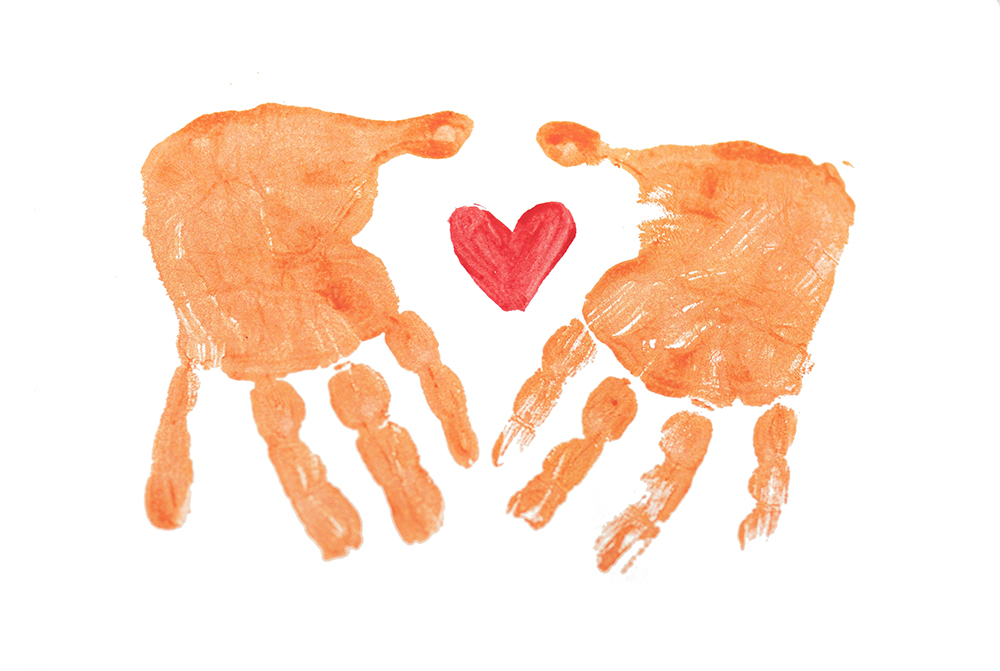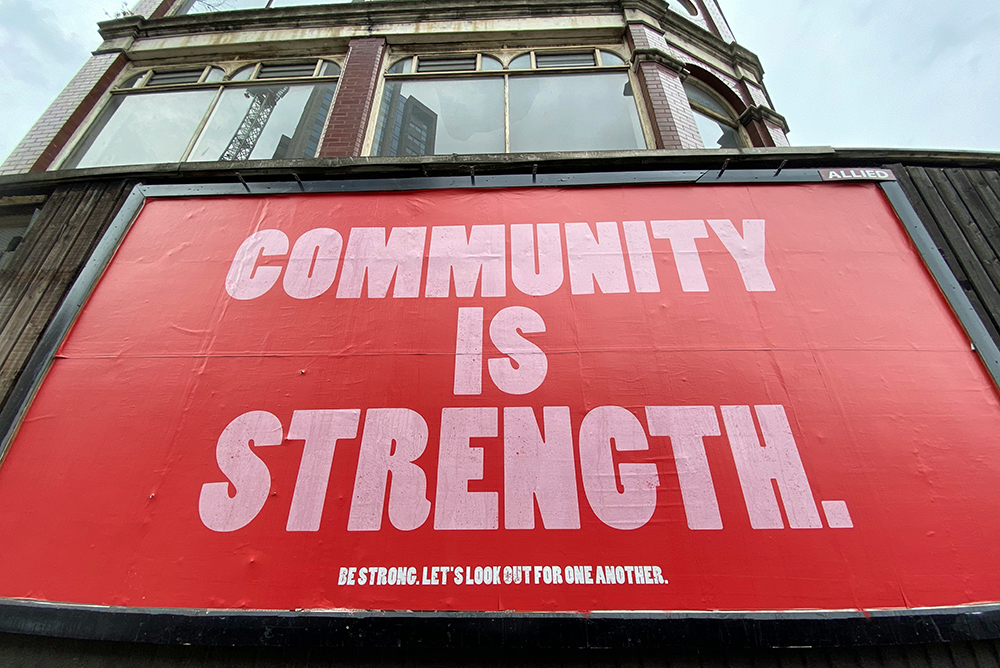
(Unsplash/Rod Long)
Many major events in the past several months — and years — have given us ample opportunities to wake up to the harm and violence caused by many major and dominant systems in the United States. These systems were constructed to benefit a few while excluding, demonizing, pathologizing and extracting life from the many. They disrespect the dignity and sovereignty of people of color, non-Christians, the Earth, queer people, people with disabilities and others who have always known the systems are fixed.
This is not new. Our country is built on the violence of colonialism, empowered by the "Doctrine of Discovery," which encouraged and supported white, Christian Europeans to dominate the Earth, Indigenous peoples and anyone who was not like them. The voices of the oppressed and marginalized have been crying out for centuries, even millennia. I can hear echoes of Israelites enslaved in Egypt, those oppressed under Roman occupation, India under British colonial rule, the women's suffrage movement in the 1920s, and the civil rights movement that continues today.
I look to Jesus, a Jewish person whose kin lived under the oppressive rule of Rome and a religious elite who would do anything to maintain power and privilege. In a previous Horizons column, I wrote about how Jesus shows us a way to liberation through inner transformation. Jesus also gives us examples of how to build communities of welcome and care. He gathered the poor, outcasts, misunderstood and sinners together, showing us that we can develop alternative systems and communities of liberation.
Early communities of "The Way" held everything in common and ate at the same table. This is another avenue to creating social change toward what he called the "Kingdom of God." Systemically powerless individuals come together and use their collective power to nurture communities built on the values of kinship, reciprocity, respect, belonging and care.
Advertisement
Religious life is an alternative community. We build our lives and relationships around values and ideals that are often very different from the cultures in which we grew up. Building a community together is an opportunity to model a different way of relating. Our values and practices related to money, work, communication, health and spirituality can be attempts to create communities focused on the best interests of individuals and the collective. We initiate and participate in alternative communities through our shared life and ministries.
In these times, I wonder: What could it look like to cultivate and participate in alternative communities? How do our values and way of life align with the dominant and oppressive systems? Could we live further outside of capitalism, where everything and everyone becomes a means to personal gain? Can we move toward a gift economy, where wealth is measured by how much you give away? What if we lived in greater kinship and reciprocity with the more-than-human beings around us?
How might we align and center our lives with the systemically powerless, move into the margins, and find our home among those marginalized, exploited and oppressed by the empire? What kind of communities of care might emerge if we open our hearts, minds and homes to those who are unhoused, isolated, disabled or hungry?
As religious life in the U.S. continues to shift and evolve, I imagine we can continue — with deep commitment and intention — to be communities of care for all. I envision a network of small beloved communities, living alternative values, committed to the liberation of all. I imagine a religious life that continues to uproot a white savior mentality and finds its place within liberation spaces.
What kind of communities of care might emerge if we open our hearts, minds and homes to those who are unhoused, isolated, disabled or hungry?
Within my own Providence community, I dream of how we can embody our provident God and live our values of love, mercy and justice. As I come to know myself as a tender of both soil and soul — physical and spiritual — I feel drawn to live in greater harmony with all beings of Earth. Over the past few years, my prophetic imagination and energy have been drawn to the dream of a community homestead, where I and others can tend both soil and soul.
I imagine an eco-village of buildings made from renewable and sustainable materials. We would tend the land through regenerative gardening, permaculture and native plants, while caring for the forest and waterways. We would preserve food, reuse materials, share tools and grow plants in our greenhouse. Chickens, ducks, dogs and cats would be loved and revered as essential members of this eco-community.
I envision vowed members, Providence associates, volunteers, interns and guests living in various small houses and larger communal spaces. Everyone would be invited to participate in the life of the community based on their gifts, skills, passions and capacity.
I imagine a community that serves each member and guest's physical, mental, emotional and spiritual well-being. It would be a place of respite, belonging and connection, where we support each other in turning our love-driven passions into generative lives.

(Unsplash/John Cameron)
This space would accommodate elders and newbies, able-bodied individuals and those with disabilities, ensuring everyone feels honored and nurtured. We would seek ways to communicate compassionately, unravel our internalized oppressions, and heal from trauma together. We might create a hospitality space, offer programming on spiritual and homesteading topics, and engage with the local community to support just and equitable decisions.
I know this is a big dream, but creating communities of care doesn't have to be difficult. It could be as simple as getting to know your neighbors, making a meal for an ill friend, picking up trash along your walking trail, offering a ride, or sharing your extra coat, blanket or tomato plant.
As larger systems begin to be dismantled, we can focus on being the beloved community now. Claiming our interconnectedness with all, I invite you to consider what you may offer your sister, brother or sibling that could show them you care. We do not truly know what the future will look like. So, let us embody the heart and soul of Christ even more. Let us fumble around, finding ways to uncover and be the beloved community already within, among and around.





